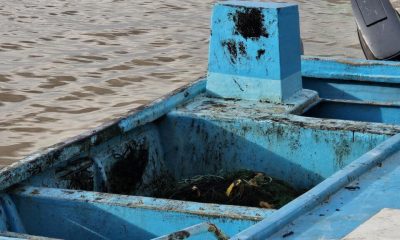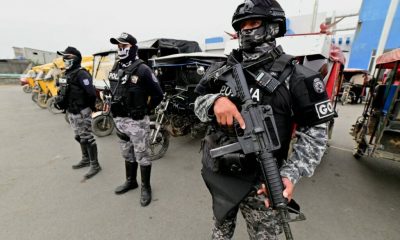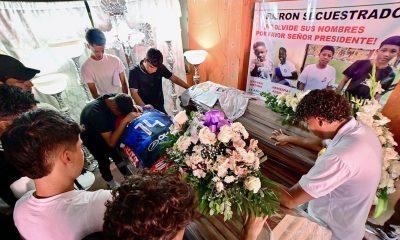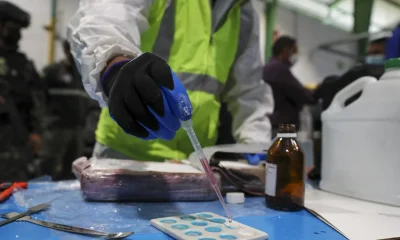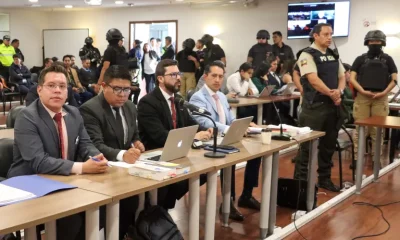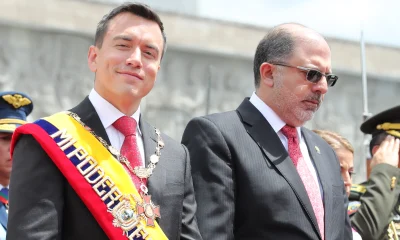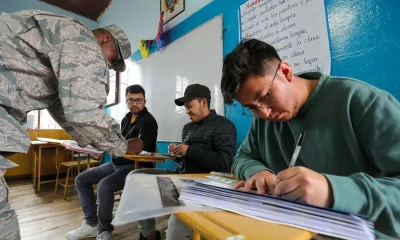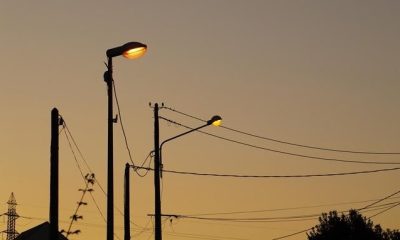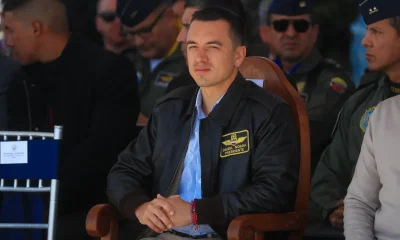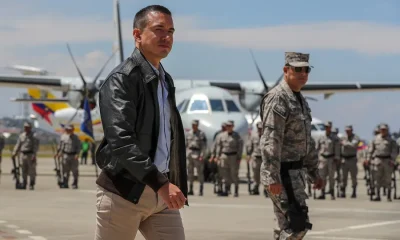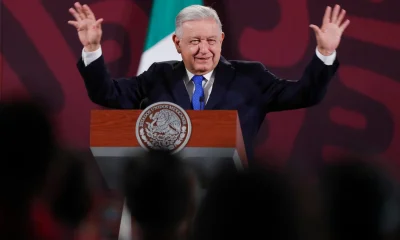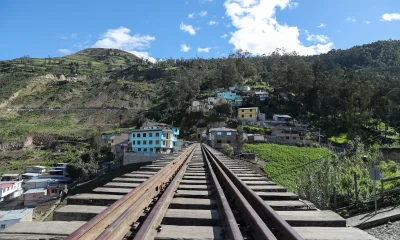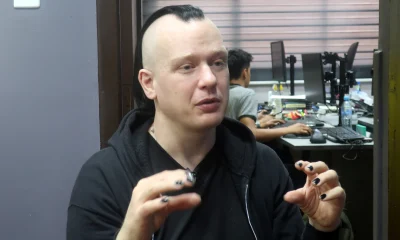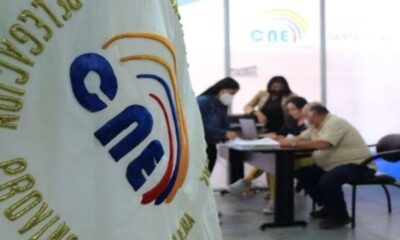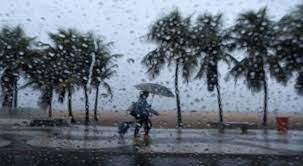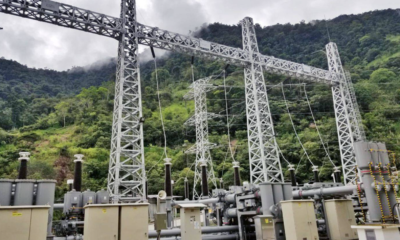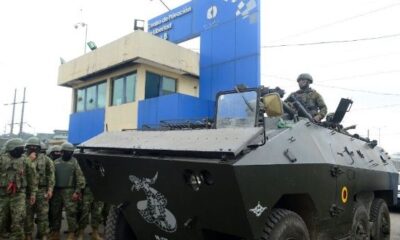International
Noboa decrees a new state of emergency in Ecuador due to the serious energy crisis
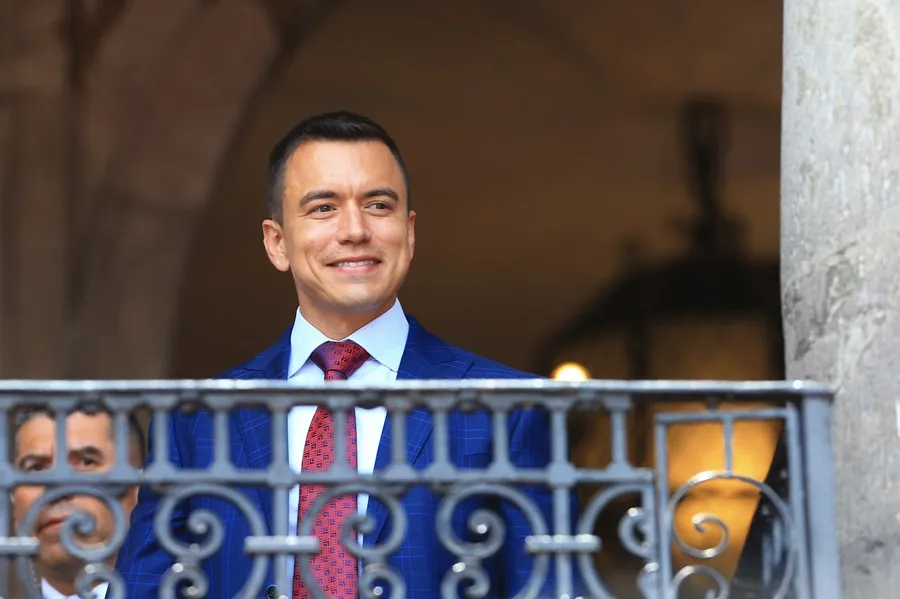
The president of Ecuador, Daniel Noboa, again decreed a new state of emergency at the national level for 60 days, this time because of the serious energy crisis that the country is going through, with blackouts of up to eight hours during to not being able to meet the national demand for electricity.
Through a decree, Noboa ordered “the mobilization and intervention of the National Police and the Armed Forces throughout the national territory, duly coordinated, to guarantee the security of critical energy infrastructure facilities to prevent sabotage, terrorist attacks or other threats that may affect their operation.”
Since last Sunday Ecuador has suffered daily blackouts in different areas of up to eight hours of duration, since the Mazar reservoir, the second largest in the country, has been left without the sufficient water level, which allows the operation of a complex of three hydroelectric plants with a power of 1,757 megawatts, equivalent to about a third of national demand.
Added to this is the cut in the supply of electricity from Colombia, which also faces a situation of great drought that does not allow it to generate surplus electricity to export to Ecuador.
This new state of emergency occurs on the eve of the referendum called by Noboa for this Sunday where it seeks to carry out with popular support a series of reforms in the field of security, justice, investments and employment.
It also arrives less than three weeks after the previous state of emergency ended, issued at the beginning of January to address the swell of violence of organized crime gangs, after a series of attacks and violent actions that included the taking of the TC Television channel by a group of armed men during a live broadcast.
The previous state of emergency was accompanied by the declaration of ‘internal armed conflict’, the same that remains until now and that serves the Ecuadorian Government to consider twenty-two criminal gangs as terrorist groups and non-state belligerent actors that can be neutralized by the Armed Forces.
Thus, in the week of the referendum, the blackouts returned to Ecuador, a situation that Ecuadorians had already experienced at the end of last year due to another similar situation of drought in the main hydroelectric plants and a fall in Colombia’s supply.
On that occasion the power cuts were up to four hours, half that at the current time that Noboa attributed to an alleged sabotage, to the point that his administration filed a complaint against twenty-two people for allegedly hiding information and not giving the voice of alert in advance.
Among the people who are part of the presidential accusation is the former Minister of Energy and Mines Andrea Arrobo, to whom Noboa asked for her resignation in a public event on Tuesday, after last Friday she had ruled out the return of blackouts to Ecuador in the short term.
Even the Secretary of Communication of the Presidency, Roberto Izurieta, went so far as to affirm on Thursday that they have suspicions that the Mazar reservoir was deliberately emptied, something that was denied by the Corporación Eléctrica del Ecuador (Celec), which operates the reservoir.
According to the data of this company, the level of the reservoir, located in the southern Andean province of Azuay, whose capital is Cuenca, has been gradually decreasing since the beginning of this year, and apparently it has not rained enough in that time for it to be replenished.
The prolonged power cuts forced the Government to decree for this Thursday and Friday the suspension of the working day and school classes, although many private businesses continued to operate normally, since in Ecuador only three out of ten people of working age have a formal job.
International
Thousands rally nationwide against Trump’s threat to U.S. democracy

Thousands of protesters gathered on Saturday (April 19, 2025) in major cities like New York and Washington, as well as in small communities across the United States, in a second wave of demonstrations against President Donald Trump. The crowds denounced what they view as growing threats to the country’s democratic ideals.
In New York City, demonstrators of all ages rallied in front of the Public Library near Trump Tower, holding signs accusing the president of undermining democratic institutions and judicial independence.
Many protesters also criticized Trump’s hardline immigration policies, including mass deportations and raids targeting undocumented migrants.
“Democracy is in grave danger,” said Kathy Valyi, 73, the daughter of Holocaust survivors. She told AFP that the stories her parents shared about Adolf Hitler’s rise to power in 1930s Germany “are happening here now.”
In Washington, demonstrators voiced concern over what they see as Trump’s disregard for long-standing constitutional norms, such as the right to due process.
International
ACLU seeks emergency court order to stop venezuelan deportations under Wartime Law

The American Civil Liberties Union (ACLU) on Friday asked two federal judges to block the U.S. government under President Donald Trump from deporting any Venezuelan nationals detained in North Texas under a rarely used 18th-century wartime law, arguing that immigration officials appear to be moving forward with deportations despite Supreme Court-imposed limitations.
The ACLU has already filed lawsuits to stop the deportation of two Venezuelan men held at the Bluebonnet Detention Center, challenging the application of the Alien Enemies Act of 1798. The organization is now seeking a broader court order that would prevent the deportation of any immigrant in the region under that law.
In an emergency filing early Friday, the ACLU warned that immigration authorities were accusing other Venezuelan detainees of being members of the Tren de Aragua, a transnational criminal gang. These accusations, the ACLU argues, are being used to justify deportations under the wartime statute.
The Alien Enemies Act has only been invoked three times in U.S. history — most notably during World War II to detain Japanese-American civilians in internment camps. The Trump administration has claimed the law allows them to swiftly remove individuals identified as gang members, regardless of their immigration status.
The ACLU, together with Democracy Forward, filed legal actions aiming to suspend all deportations carried out under the law. Although the U.S. Supreme Court recently allowed deportations to resume, it unanimously ruled that they could only proceed if detainees are given a chance to present their cases in court and are granted “a reasonable amount of time” to challenge their pending removal.
International
Dominican ‘False Hero’ Arrested for Faking Role in Nightclub Collapse That Killed 231

A man identified as Rafael Rosario Mota falsely claimed to have rescued 12 people from the collapse of the Jet Set nightclub in Santo Domingo—a tragedy that left 231 people dead—but he was never at the scene.
Intelligence agents in the Dominican Republic arrested the 32-year-old man for pretending to be a hero who saved lives during the catastrophic incident, authorities announced.
Rosario Mota had been charging for media interviews in which he falsely claimed to have pulled survivors from the rubble after the nightclub’s roof collapsed in the early hours of April 8, during a concert by merengue singer Rubby Pérez, who was among those killed.
“He was never at the scene of the tragedy,” the police stated. The arrest took place just after he finished another interview on a digital platform, where he repeated his fabricated story in exchange for money as part of a “media tour” filled with manipulated information and invented testimonies.
“False hero!” read a message shared on the police force’s Instagram account alongside a short video of the suspect, in which he apologized: “I did it because I was paid. I ask forgiveness from the public and the authorities.”
-

 Central America5 days ago
Central America5 days agoPetro questions Ecuador’s vote, cites reports of military control and arrests
-

 International4 days ago
International4 days agoArsenal stun Real Madrid at the Bernabéu to reach Champions League semifinals
-

 International3 days ago
International3 days agoDominican ‘False Hero’ Arrested for Faking Role in Nightclub Collapse That Killed 231
-

 Central America3 days ago
Central America3 days agoNicaraguan Exiles to Mark 7th Anniversary of 2018 Protests with Global Commemorations
-

 International4 days ago
International4 days agoBogotá residents line up for yellow fever vaccine amid national alert
-

 International2 days ago
International2 days agoACLU seeks emergency court order to stop venezuelan deportations under Wartime Law
-

 International4 days ago
International4 days agoDeSantis’ immigration crackdown sparks alarm in Venezuelan Communities in Doral
-

 Central America2 days ago
Central America2 days agoUN complaint filed against Costa Rica over detention of migrant children
-

 International4 days ago
International4 days agoMexico refuses to restore ties with Ecuador while Noboa remains in office
-

 International15 hours ago
International15 hours agoThousands rally nationwide against Trump’s threat to U.S. democracy
-

 International5 days ago
International5 days agoColombia: Search continues for missing limb of italian scientist found dismembered














